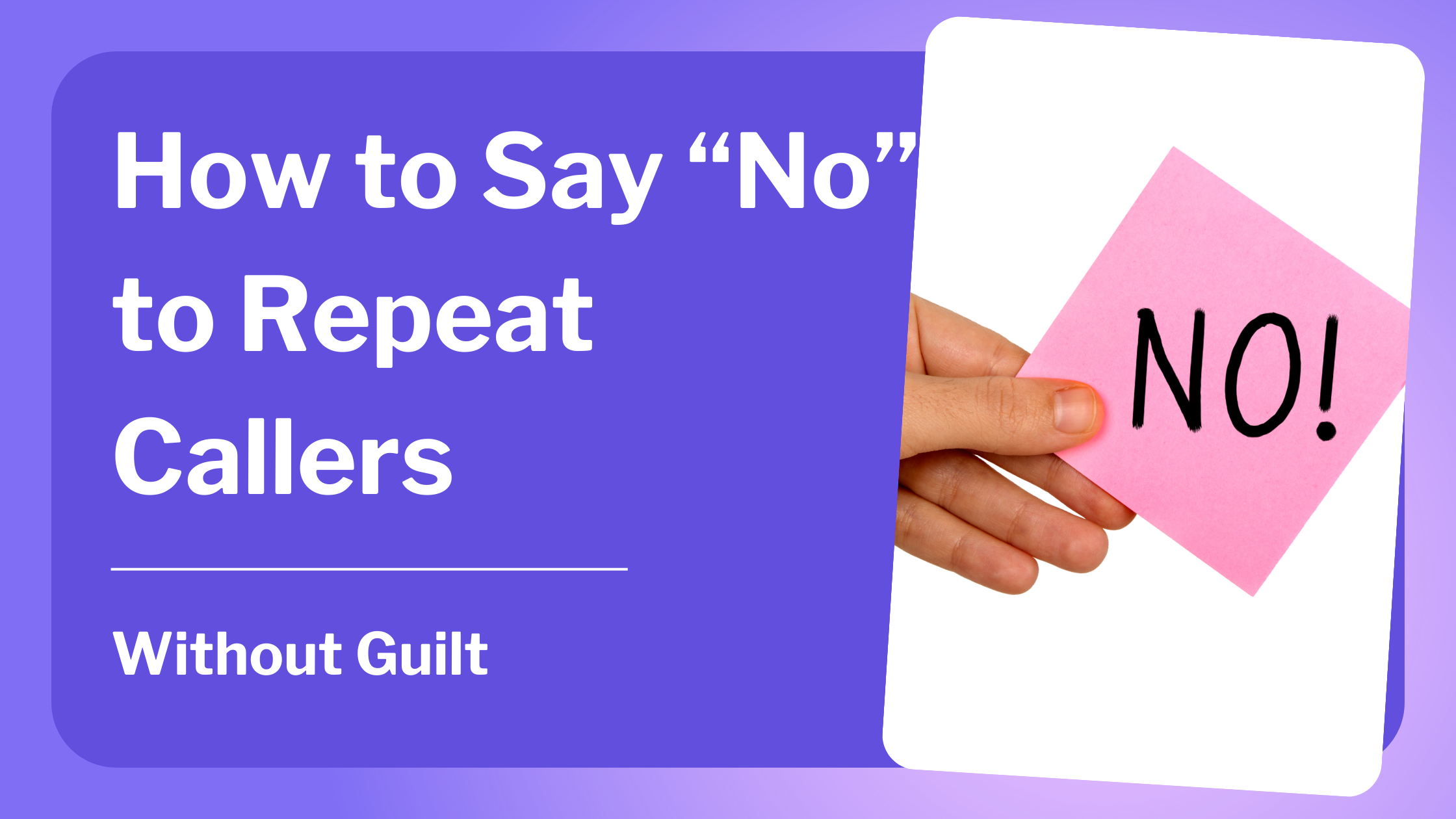
Published 09/18/25
The Pressure to Answer
The phone rings again. Same number. Same person. And even though you don’t want to answer, a little voice says: What if it’s rude to ignore them? What if I should give them one more chance?
That’s the guilt talking—and it’s exactly what repeat callers count on.
But here’s the truth: saying “no” to a call isn’t rude. It’s self-protection. Here’s how to draw the line without second-guessing yourself.
Why Guilt Creeps In
Social Pressure
We’re conditioned to treat phone calls as urgent. Not answering feels like breaking an unspoken rule.Manipulation by Harassers
Repeat callers often guilt-trip: “Why didn’t you pick up?” or “I’ll keep calling until you do.”Fear of Missing Out
A tiny part of you wonders: What if this time it’s different? What if it’s important?
But boundaries don’t require justification—they only require consistency.
Step 1: Redefine What “No” Means
“No” isn’t rejection. It’s direction. It tells others (and yourself): This time, I’m choosing peace over interruption.
 Mindset shift: A declined call isn’t rude. It’s clarity.
Mindset shift: A declined call isn’t rude. It’s clarity.
Step 2: Let Technology Hold the Line
You don’t have to be the one saying “no” every time.
 Action: Use iCaughtYou to blacklist repeat callers permanently. Once they’re on your blacklist, the app says “no” for you—every time—without you lifting a finger.
Action: Use iCaughtYou to blacklist repeat callers permanently. Once they’re on your blacklist, the app says “no” for you—every time—without you lifting a finger.
Step 3: Silence the Gray Area
Some calls aren’t harassment—they’re just unwanted. And those can create the most guilt.
 Action: Silence unknown numbers by default. Let them leave a voicemail if it’s important. With iCaughtYou, you can unmask hidden callers after the fact, so you decide whether they deserve your time.
Action: Silence unknown numbers by default. Let them leave a voicemail if it’s important. With iCaughtYou, you can unmask hidden callers after the fact, so you decide whether they deserve your time.
Step 4: Use Proof to Quiet Doubt
Part of guilt comes from second-guessing: Did I overreact? Am I being unfair?
 Action: Record calls with iCaughtYou. Having a record reminds you why you set the boundary in the first place. Proof replaces doubt.
Action: Record calls with iCaughtYou. Having a record reminds you why you set the boundary in the first place. Proof replaces doubt.
Step 5: Practice Small No’s
Confidence grows with repetition. Every time you decline a call or blacklist a number, you reinforce that your peace matters. Over time, guilt fades—and empowerment takes its place.
Why Boundaries Without Guilt Are Powerful
When guilt disappears, your phone transforms from a stress trigger into a safe space. Calls stop being demands and start being choices.
With iCaughtYou, saying “no” isn’t personal—it’s practical.
Bottom Line: Saying No Is Saying Yes—to Yourself
Every “no” to a repeat caller is a “yes” to your peace, your focus, and your time. With unmasking, blacklisting, and recording, iCaughtYou makes that “no” stick—without guilt attached.
Say No with Confidence Today
Let iCaughtYou handle the repeat callers. Blacklist them now
Blacklist them now
Further Reading
The Confidence Boost of Setting Phone Boundaries – iCaughtYou Blog
How to Permanently Stop Repeat Callers – iCaughtYou Blog